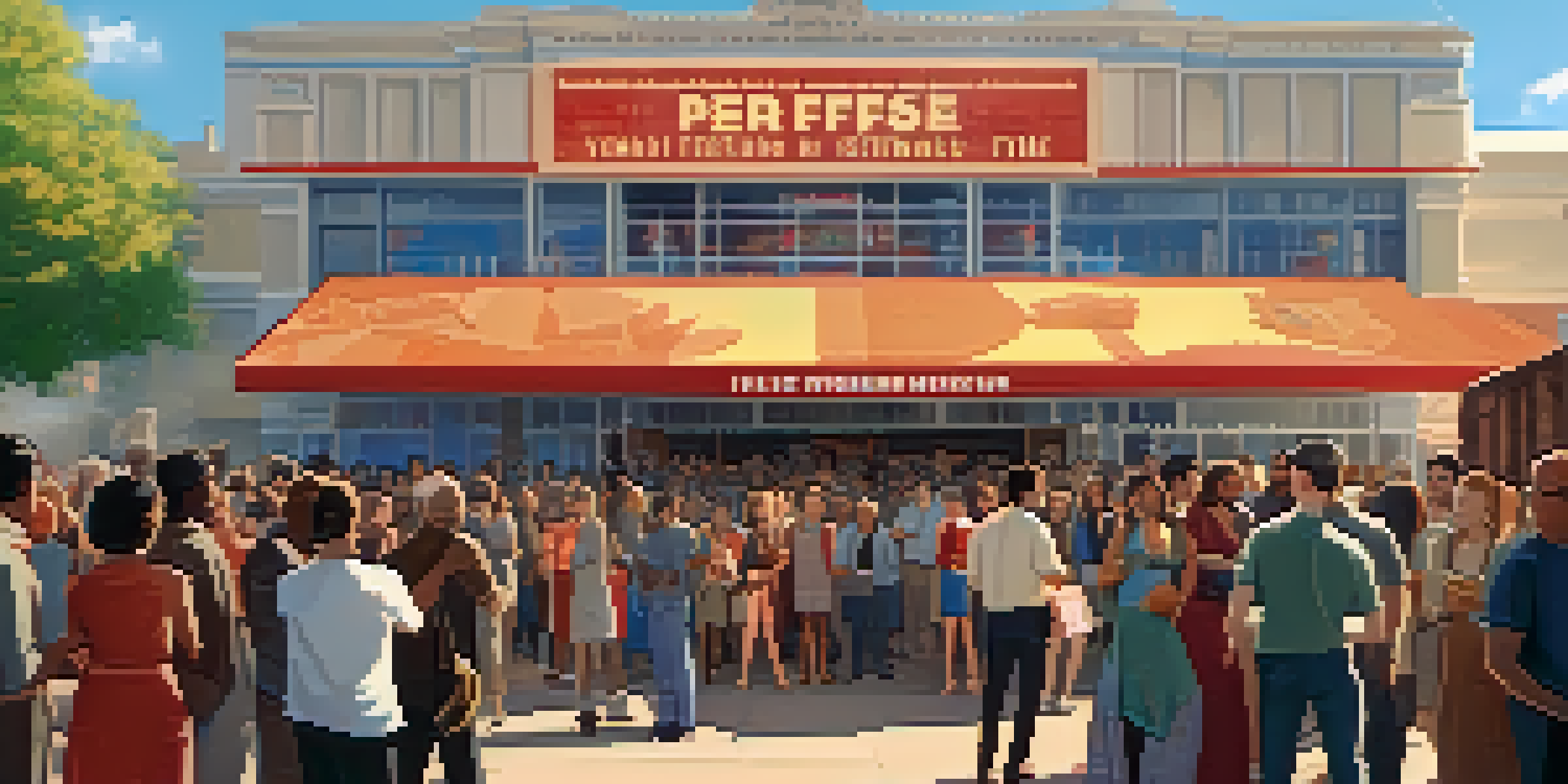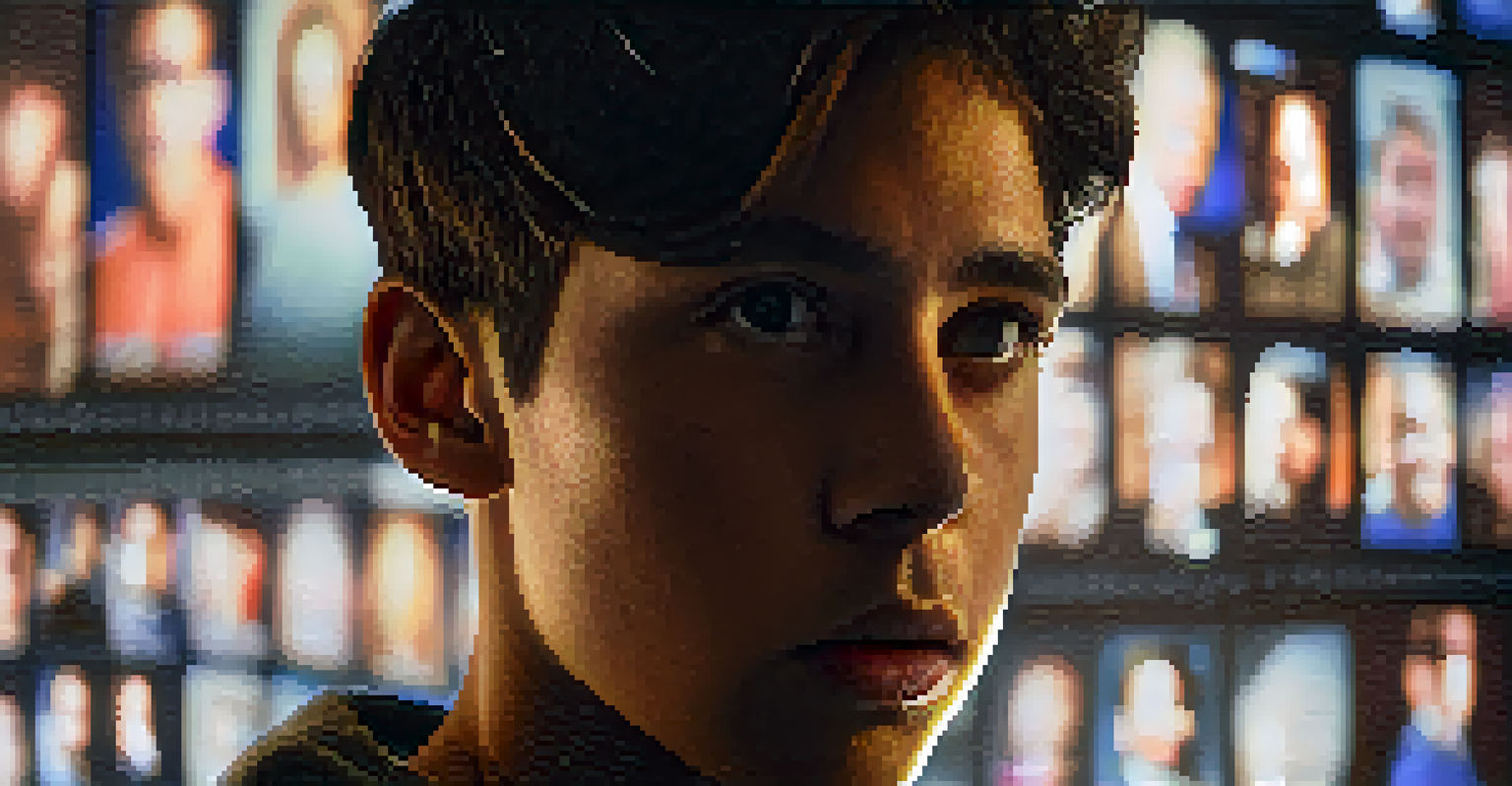The Film Effect: Changing International Political Conversations

The Power of Film in Shaping Narratives
Film has a unique ability to convey complex ideas through storytelling. It can evoke emotions and provoke thought, making it a powerful tool in shaping public perception. As audiences engage with characters and plots, they often find themselves reflecting on broader societal issues.
Film is a powerful tool for shaping public perception and can evoke emotions that lead to social change.
For instance, films like 'Hotel Rwanda' and 'The Kite Runner' have brought attention to humanitarian crises, influencing how viewers understand and discuss these events. These narratives can put a human face on distant issues, prompting viewers to feel empathy and a sense of urgency.
Through cinematic stories, filmmakers can challenge dominant narratives and introduce new perspectives. This not only stimulates conversations within communities but also creates ripple effects in international discussions.
Documentary Films as Catalysts for Change
Documentaries serve as a bridge between entertainment and education, often highlighting critical political issues. Films like '13th' and 'Won't You Be My Neighbor?' have sparked conversations about systemic racism and social justice, respectively. They provide a platform for marginalized voices, fostering understanding and advocacy.

These documentaries often rely on factual evidence and real-life experiences to draw attention to injustices, encouraging audiences to reassess their beliefs. As viewers are exposed to these narratives, they may feel compelled to take action or engage in discussions about reform.
Film's Power to Shape Narratives
Films can evoke emotions and provoke thought, ultimately influencing public perception and understanding of societal issues.
The impact of such films extends beyond the screen; they can inspire grassroots movements and influence policy changes. By raising awareness and igniting passion, documentaries can play a pivotal role in shaping political discourse.
The Role of Film Festivals in Political Dialogue
Film festivals are vital spaces for showcasing films that challenge political status quo. Events like the Sundance Film Festival or Cannes often feature films with strong political themes, providing filmmakers a platform to voice their concerns. These festivals attract diverse audiences, including activists, journalists, and policymakers.
Documentaries have the ability to highlight critical issues and provide a platform for marginalized voices.
By fostering discussions around these films, festivals create a space for dialogue that extends beyond the theater. Panel discussions and Q&A sessions often lead to deeper exploration of the issues presented, encouraging attendees to consider their roles in the political landscape.
Thus, film festivals not only celebrate creativity but also serve as incubators for social change. The conversations sparked within these settings can lead to broader movements, influencing how politics is approached on an international scale.
How Global Cinema Influences Local Politics
Global cinema often reflects and influences local political climates, impacting how citizens view their governments. Films from different cultures can resonate with local audiences, highlighting shared struggles and aspirations. For example, Bollywood movies addressing corruption can motivate viewers to demand accountability from their leaders.
Moreover, international films can introduce new ideas and frameworks for understanding governance and civic engagement. When audiences see their realities depicted on screen, it can empower them to engage more actively in political processes.
Documentaries Inspire Change
Documentaries highlight critical political issues, often sparking conversations that lead to advocacy and grassroots movements.
This cross-cultural exchange fosters a sense of solidarity among viewers, encouraging them to reflect on their roles in shaping their societies. The result is a more informed and engaged citizenry willing to advocate for change.
Social Media: Amplifying Film's Political Impact
In today's digital age, social media plays a crucial role in amplifying the messages conveyed through film. Platforms like Twitter and Instagram allow filmmakers to share their work and engage with audiences directly. This immediacy helps catalyze discussions around pressing political issues depicted in their films.
When a film goes viral, it can lead to an explosion of conversation, prompting viewers to share their thoughts and experiences. Hashtags related to films can trend, attracting attention from wider audiences and media outlets, effectively broadening the conversation.
Furthermore, social media can serve as a tool for mobilization, encouraging viewers to take action on issues highlighted in films. This synergy between film and social media creates a dynamic space for discussion, making political conversations more accessible and widespread.
The Impact of Film on Youth Political Engagement
Films can profoundly influence young people's understanding of political issues, shaping their values and beliefs. Movies that address themes of activism and social justice can inspire youth to become more politically engaged. For instance, films like 'The Hate U Give' resonate with younger audiences, encouraging them to speak out against injustice.
As young viewers identify with characters and storylines, they often feel a personal connection to the issues portrayed. This emotional engagement can motivate them to participate in activism, whether through protests, online campaigns, or informed voting.
Social Media Amplifies Film Impact
In the digital age, social media enhances the reach of films, facilitating discussions and mobilizing audiences around pressing political issues.
Consequently, film becomes a powerful medium for educating and mobilizing the next generation of leaders. By fostering a sense of agency, filmmakers can help cultivate a politically aware and active youth population.
Challenges and Controversies in Political Cinema
Despite its potential for impact, political cinema is not without challenges and controversies. Filmmakers often face censorship, particularly in regimes that are sensitive to dissenting voices. This censorship can limit the stories that get told, potentially stifling important discussions.
Moreover, the interpretation of political films can vary widely among audiences, leading to polarized views. A film that aims to provoke thought may inadvertently reinforce existing biases or misconceptions, complicating its intended message.

Navigating these challenges requires filmmakers to be both creative and strategic. By pushing boundaries while remaining aware of the socio-political context, filmmakers can continue to spark meaningful conversations and drive change.